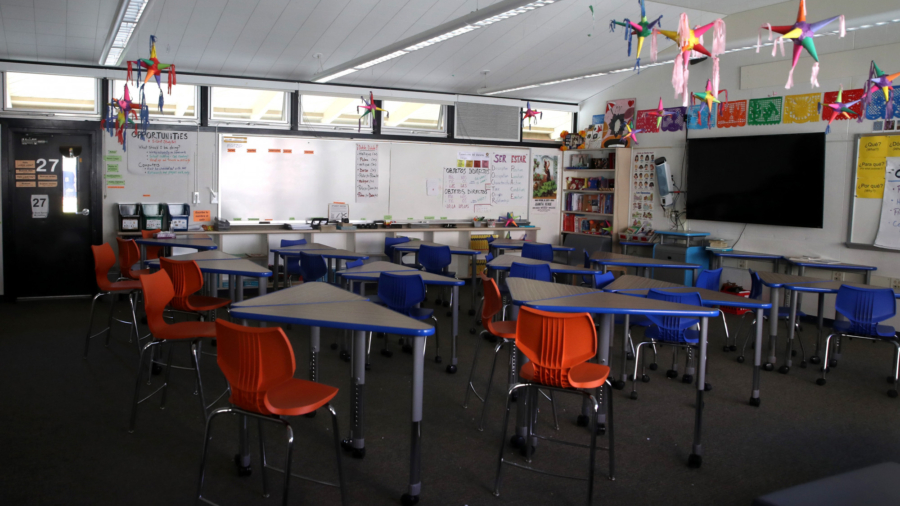California has agreed to designate at least $2 billion to help disadvantaged students who fell behind in their learning during the COVID-19 lockdowns, according to a recent legal settlement.
In 2020, families in Los Angeles and Oakland sued the California Department of Education (CDE) while public school students were still learning remotely. Filed by nonprofit law firm Public Counsel, the lawsuit claimed California’s “extended” school closures “exposed deeply embedded inequalities” in the state’s education system. Especially for children from lower-income families in black and Latino communities
Mark Rosenbaum, Public Counsel’s senior special counsel for strategic litigation, said the settlement was one of the largest education-related settlements in U.S. history and a victory for the community.
“The urgent vision of this historic settlement is not just to recoup the academic losses suffered by California’s most disadvantaged students, but to erase the opportunity gaps altogether exacerbated by the pandemic,” he said.
“This is a victory of partnership of students, caregivers, and community organizations with California’s leadership that recognizes that educational opportunity is the state’s greatest natural resource,” Mr. Rosenbaum added.
As part of the settlement, the CDE has agreed to propose a law allowing funds to be spent on community organizations with a proven track record of improving student success. The programs must serve students identified using a data-driven process incorporating academic performance in math and English language arts.
Going forward, school districts will receive funding proportionately to their respective enrollments of high-needs populations, such as low-income students. State legislators will also direct schools and districts to spend part of the $2 billion funding on interventions with previous records of success, such as in-school tutoring.
However, it’s far from a done deal yet. The proposed law still needs to pass through the state legislature. Should it fail to pass, or if California doesn’t spend the required $2 billion, the plaintiffs, represented by Public Counsel and Morrison Foerster, have the right to return to court.
Ongoing Legal Battle
Initially filed in 2020, Cayla J. v. the State of California argued that state officials bungled the transition to remote learning following the extended lockdowns and failed to mitigate most students’ learning loss. Fifteen students across Oakland and Los Angeles and a pair of community organizations originally brought the case against the state superintendent, the state board, and the CDE.
According to the lawsuit, the plaintiffs claim they only received a few days of live teaching after their schools were shuttered in the spring of 2020. By the fall, school days consisted of less than two hours of instruction split up in the morning and afternoon. Limited access to high-speed internet and equipment such as laptops meant that for many, very little schooling took place during those months.
New data from the Education Recovery Scorecard, a research partnership between social scientists at Harvard and Stanford, shows the effects of prolonged time away from structured school learning has been devastating for students. Even years later, after the lockdowns have been lifted and normalcy somewhat returned, many California students still lag far behind grade level on math and reading skills assessments.
From The Epoch Times

